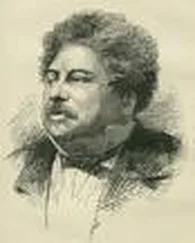Alexandre Dumas - Mary Stuart
Здесь есть возможность читать онлайн «Alexandre Dumas - Mary Stuart» — ознакомительный отрывок электронной книги совершенно бесплатно, а после прочтения отрывка купить полную версию. В некоторых случаях можно слушать аудио, скачать через торрент в формате fb2 и присутствует краткое содержание. Жанр: literature_19, foreign_antique, foreign_prose, на английском языке. Описание произведения, (предисловие) а так же отзывы посетителей доступны на портале библиотеки ЛибКат.
- Название:Mary Stuart
- Автор:
- Жанр:
- Год:неизвестен
- ISBN:нет данных
- Рейтинг книги:3 / 5. Голосов: 1
-
Избранное:Добавить в избранное
- Отзывы:
-
Ваша оценка:
- 60
- 1
- 2
- 3
- 4
- 5
Mary Stuart: краткое содержание, описание и аннотация
Предлагаем к чтению аннотацию, описание, краткое содержание или предисловие (зависит от того, что написал сам автор книги «Mary Stuart»). Если вы не нашли необходимую информацию о книге — напишите в комментариях, мы постараемся отыскать её.
Mary Stuart — читать онлайн ознакомительный отрывок
Ниже представлен текст книги, разбитый по страницам. Система сохранения места последней прочитанной страницы, позволяет с удобством читать онлайн бесплатно книгу «Mary Stuart», без необходимости каждый раз заново искать на чём Вы остановились. Поставьте закладку, и сможете в любой момент перейти на страницу, на которой закончили чтение.
Интервал:
Закладка:
Alexandre Dumas
Mary Stuart / Celebrated Crimes
CHAPTER I
Some royal names are predestined to misfortune: in France, there is the name “Henry”. Henry I was poisoned, Henry II was killed in a tournament, Henry III and Henry IV were assassinated. As to Henry V, for whom the past is so fatal already, God alone knows what the future has in store for him.
In Scotland, the unlucky name is “Stuart”. Robert I, founder of the race, died at twenty-eight of a lingering illness. Robert II, the most fortunate of the family, was obliged to pass a part of his life, not merely in retirement, but also in the dark, on account of inflammation of the eyes, which made them blood-red. Robert III succumbed to grief, the death of one son and the captivity of other. James I was stabbed by Graham in the abbey of the Black Monks of Perth. James II was killed at the siege of Roxburgh, by a splinter from a burst cannon. James III was assassinated by an unknown hand in a mill, where he had taken refuge during the battle of Sauchie. James IV, wounded by two arrows and a blow from a halberd, fell amidst his nobles on the battlefield of Flodden. James V died of grief at the loss of his two sons, and of remorse for the execution of Hamilton. James VI, destined to unite on his head the two crowns of Scotland and England, son of a father who had been assassinated, led a melancholy and timorous existence, between the scaffold of his mother, Mary Stuart, and that of his son, Charles I. Charles II spent a portion of his life in exile. James II died in it. The Chevalier Saint-George, after having been proclaimed King of Scotland as James VIII, and of England and Ireland as James III, was forced to flee, without having been able to give his arms even the lustre of a defeat. His son, Charles Edward, after the skirmish at Derby and the battle of Culloden, hunted from mountain to mountain, pursued from rock to rock, swimming from shore to shore, picked up half naked by a French vessel, betook himself to Florence to die there, without the European courts having ever consented to recognise him as a sovereign. Finally, his brother, Henry Benedict, the last heir of the Stuarts, having lived on a pension of three thousand pounds sterling, granted him by George III, died completely forgotten, bequeathing to the House of Hanover all the crown jewels which James II had carried off when he passed over to the Continent in 1688 – a tardy but complete recognition of the legitimacy of the family which had succeeded his.
In the midst of this unlucky race, Mary Stuart was the favourite of misfortune. As Brantome has said of her, “Whoever desires to write about this illustrious queen of Scotland has, in her, two very, large subjects, the one her life, the other her death,” Brantome had known her on one of the most mournful occasions of her life – at the moment when she was quitting France for Scotland.
It was on the 9th of August, 1561, after having lost her mother and her husband in the same year, that Mary Stuart, Dowager of France and Queen of Scotland at nineteen, escorted by her uncles, Cardinals Guise and Lorraine, by the Duke and Duchess of Guise, by the Duc d’Aumale and M. de Nemours, arrived at Calais, where two galleys were waiting to take her to Scotland, one commanded by M. de Mevillon and the other by Captain Albize. She remained six days in the town. At last, on the 15th of the month, after the saddest adieus to her family, accompanied by Messieurs d’Aumale, d’Elboeuf, and Damville, with many nobles, among whom were Brantome and Chatelard, she embarked in M. Mevillon’s galley, which was immediately ordered to put out to sea, which it did with the aid of oars, there not being sufficient wind to make use of the sails.
Mary Stuart was then in the full bloom of her beauty, beauty even more brilliant in its mourning garb – a beauty so wonderful that it shed around her a charm which no one whom she wished to please could escape, and which was fatal to almost everyone. About this time, too, someone made her the subject of a song, which, as even her rivals confessed, contained no more than the truth. It was, so it was said, by M. de Maison-Fleur, a cavalier equally accomplished in arms and letters: Here it is: —
“In robes of whiteness, lo, Full sad and mournfully, Went pacing to and fro Beauty’s divinity; A shaft in hand she bore From Cupid’s cruel store, And he, who fluttered round, Bore, o’er his blindfold eyes And o’er his head uncrowned, A veil of mournful guise, Whereon the words were wrought: ‘You perish or are caught.’”
Yes, at this moment, Mary Stuart, in her deep mourning of white, was more lovely than ever; for great tears were trickling down her cheeks, as, weaving a handkerchief, standing on the quarterdeck, she who was so grieved to set out, bowed farewell to those who were so grieved to remain.
At last, in half an hour’s time, the harbour was left behind; the vessel was out at sea. Suddenly, Mary heard loud cries behind her: a boat coming in under press of sail, through her pilot’s ignorance had struck upon a rock in such a manner that it was split open, and after having trembled and groaned for a moment like someone wounded, began to be swallowed up, amid the terrified screams of all the crew. Mary, horror-stricken, pale, dumb, and motionless, watched her gradually sink, while her unfortunate crew, as the keel disappeared, climbed into the yards and shrouds, to delay their death-agony a few minutes; finally, keel, yards, masts, all were engulfed in the ocean’s gaping jaws. For a moment there remained some black specks, which in turn disappeared one after another; then wave followed upon wave, and the spectators of this horrible tragedy, seeing the sea calm and solitary as if nothing had happened, asked themselves if it was not a vision that had appeared to them and vanished.
“Alas!” cried Mary, falling on a seat and leaning both arms an the vessel’s stern, “what a sad omen for such a sad voyage!” Then, once more fixing on the receding harbour her eyes, dried for a moment by terror, and beginning to moisten anew, “Adieu, France!” she murmured, “adieu, France!” and for five hours she remained thus, weeping and murmuring, “Adieu, France! adieu, France!”
Darkness fell while she was still lamenting; and then, as the view was blotted out and she was summoned to supper, “It is indeed now, dear France,” said she, rising, “that I really lose you, since jealous night heaps mourning upon mourning, casting a black veil before my sight. Adieu then, one last time, dear France; for never shall I see you more.”
With these words, she went below, saying that she was the very opposite of Dido, who, after the departure of AEneas, had done nothing but look at the waves, while she, Mary, could not take her eyes off the land. Then everyone gathered round her to try to divert and console her. But she, growing sadder, and not being able to respond, so overcome was she with tears, could hardly eat; and, having had a bed got ready on the stern deck, she sent for the steersman, and ordered him if he still saw land at daybreak, to come and wake her immediately. On this point Mary was favoured; for the wind having dropped, when daybreak came the vessel was still within sight of France.
It was a great joy when, awakened by the steersman, who had not forgotten the order he had received, Mary raised herself on her couch, and through the window that she had had opened, saw once more the beloved shore. But at five o’clock in the morning, the wind having freshened, the vessel rapidly drew farther away, so that soon the land completely disappeared. Then Mary fell back upon her bed, pale as death, murmuring yet once again – “Adieu, France! I shall see thee no more.”
Indeed, the happiest years of her life had just passed away in this France that she so much regretted.
Читать дальшеИнтервал:
Закладка:
Похожие книги на «Mary Stuart»
Представляем Вашему вниманию похожие книги на «Mary Stuart» списком для выбора. Мы отобрали схожую по названию и смыслу литературу в надежде предоставить читателям больше вариантов отыскать новые, интересные, ещё непрочитанные произведения.
Обсуждение, отзывы о книге «Mary Stuart» и просто собственные мнения читателей. Оставьте ваши комментарии, напишите, что Вы думаете о произведении, его смысле или главных героях. Укажите что конкретно понравилось, а что нет, и почему Вы так считаете.












